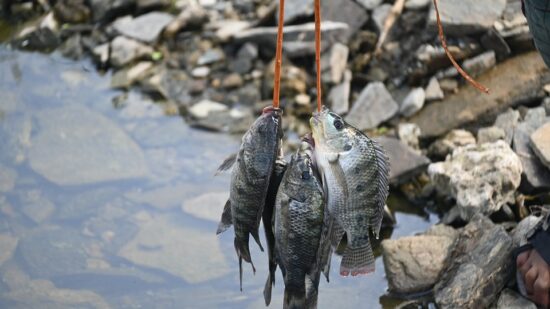Fish as sentinels of antimicrobial resistant bacteria, epidemic carbapenemase genes, and antibiotics in surface water
Surface waters, especially those receiving wastewater flows, can disseminate antimicrobial resistant bacteria (ARB), antimicrobial resistance genes (ARG), and antibiotics. In the Scioto River of central Ohio, United States, we evaluated fishes as potential sentinels of ARB and antimicrobial contamination and investigated the influence of antimicrobial exposure on the fish intestinal resistome. Seventy-seven fish were collected from river reaches receiving inputs from two wastewater treatment plants that serve the greater Columbus Metropolitan Area. Fish were screened for the presence of cephalosporin-resistant (CeRO) and carbapenem-resistant (CRO) organisms, epidemic carbapenemase genes, and antibiotic drugs and metabolites using culture methods, droplet digital PCR, and ultra-high performance liquid chromatography tandem mass spectroscopy (UHPLC-MS/MS).
Our findings confirm that fishes can be effective bioindicators of surface waters contaminated with ARB, ARG, and antibiotics. Moreover, our findings highlight the varying importance of different mechanisms that facilitate establishment of ARB in aquatic ecosystems.
AMR NEWS
Your Biweekly Source for Global AMR Insights!
Stay informed with the essential newsletter that brings together all the latest One Health news on antimicrobial resistance. Delivered straight to your inbox every two weeks, AMR NEWS provides a curated selection of international insights, key publications, and the latest updates in the fight against AMR.
Don’t miss out on staying ahead in the global AMR movement—subscribe now!






